Google I/O Preview: Android M, Chromecast 2, and More
From Android M to Project Ara, here's what to expect from Google I/O 2015.
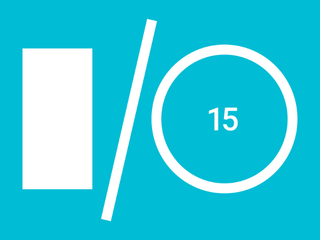
Ever an exciting time for Android fans, Google's annual I/O developer conference has introduced big innovations that affect everything from smartphones to connected cars. This year's event, taking place on May 28 and 29 in San Francisco's Moscone Center, promises to be no different.
From the latest evolution of Android OS to new and improved Google-based smartwatches, here's what we're expecting to see at the big show.
Android M: Built for Work and Play
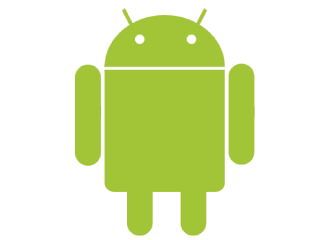
Previous I/O events have introduced new versions of Android, and we expect to learn a ton about Android M this time around. The name "Android M" was leaked on the official I/O schedule under an event description for Android for Work, which, according to Android Authority, has since been removed by Google. As for what tasty treat the "M" will stand for -- the most recent Android versions, K and L, stood for KitKat and Lollipop, respectively --we'll have to wait and see.
The same event blurb that leaked Android M may also hint at the software's new direction. The session description, as screengrabbed by Android Authority, says that Android is coming to "all kinds of workplaces," and mentions that small businesses, mobile workers and logistics employees will all be able to take advantage of the operating system's work-minded features. Whether this means new productivity apps or the integration of Android within new types of hardware, such as package scanners, remains to be seen.
MORE: Best Smartphones on the Market Now
Not only will Android M bring a lot of new work features, but it looks like we could see some big features coming to the operating system including a native fingerprint sensor. Android phones like the Samsung Galaxy S5 and S6 have fingerprint readers already, but those were made by the OEMs. Google is said to be working on a native solution, which would allow users to access Google Wallet or the Play Store in a more secure manner. Also, a universal fingerprint API for Android could encourage manufacturers to add fingerprint sensors to their Android devices.
Android M may also make Hangouts smarter by letting it suggest responses when it detects certain phrases and questions in your conversations. For example, if a contact asks "Where are you?" Hangouts could let you send your location directly from the app. These kinds of features are even more likely to come to Hangouts now after Google's recent purchase of the messaging app Emu, which had similar functionality.
Sign up to get the BEST of Tom's Guide direct to your inbox.
Get instant access to breaking news, the hottest reviews, great deals and helpful tips.
Android Pay

We should finally see the launch of Android Pay at I/O this year, Google's long-awaited digital payment system and Apple Pay rival. A February report by Ars Technica claimed the Android Pay would be "built from the ground up," though at the time, it wasn't totally clear the form that Android Pay would take when it arrived.
That became more clear on the eve of Google I/O, as the New York Times reports that Google will not only introduce Android Pay but unveil a revamped Google Wallet that will allow peer-to-peer payments where you can transfer money from your bank account to other Google Wallet users. The Times report says that Android Pay can be used at retail outlets as well as through merchants' mobile apps.
Chromecast 2
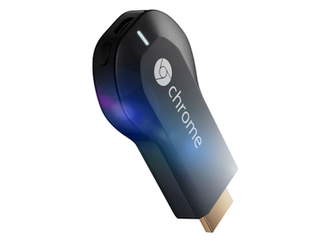
The Chromecast streaming stick turns two years old this summer, making it the perfect time for Google to unveil its successor. There's an I/O session dedicated to building games for Google Cast devices, which will touch on "designing for the mobile and television experience on multiple screens." Will the new Chromecast allow for multi-display gaming? We'll have to wait and see. With Apple expected to revampits Apple TV later this year, Google could certainly benefit from having its miniature media player back in the spotlight.
Android Wear Evolves, Project Ara Emerges
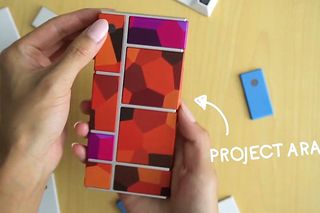
With the Apple Watch finally in the wild, it's time for Android Wear to step up its game. Google's smartwatch software recently gained an improved interface and the ability to function on Wi-Fi alone, and we're eager to hear more about how Google is planning to compete with Apple's new wearable platform.
A session at I/O hosted by Google's ATAP team promises "wearables that we hope will blow your socks off," which may include new smartwatches that run Google's wrist-worn software. However, since ATAP is teasing something groundbreaking, we might just see new types of wearables that don't rely on Android Wear at all.
The session will also put a big focus on Googe's modular Project Ara smartphones, which are launching in Puerto Rico by the end of the year. We could see new modules and prototypes for Google's wildly customizable handsets and might learn when to expect Project Ara throughout the rest of the globe.
Android Auto Gets into Gear
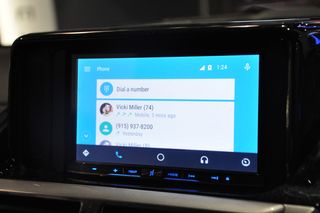
Android Auto has its own dedicated I/O talk, which will presumably teach us more about how Google's operating system will work in your car. We recently got to test the company's in-car software using Pioneer's NEX receiver, and came away impressed by how well Android translates to the dashboard. Android Auto is rolling out later this year on vehicles from companies such as Acura, Chevy and Honda, and we hope to learn more about its features and availability at I/O.
Voice-Controlled Apps

Another tasty tidbit from the I/O schedule is the promise of Voice Actions, which may let you speak your way through any Android app. A session titled "Your app, now available hands-free" is scheduled for Day One of the conference, and is slated to "discuss ways to give anyone access to their Android device through voice alone."
Google Glass 2.0?
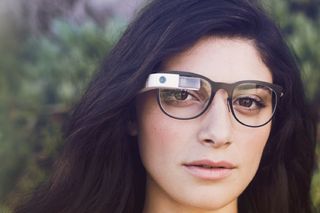
The original version of Google Glass was shuttered earlier this year, with CEO Tony Fadell guiding development of its successor. While it might be too early for the next iteration of Glass to take the stage, we're hoping to at least learn a little more about how Google is improving its flagship smartglasses.
New Photo Service

After months of speculation, we could finally see a stand-alone photo service from Google. An unnamed source speaking to Bloomberg says the company is close to unveiling a photo sharing tool which would let users easily store photos as well as share them across social networks like Facebook and Twitter. This doesn't come as a surprise since Google recently acquired the app Odysee, which backs up smartphone photos to a desktop for more convenient storage and sharing. Its own photo service would let Google compete further with the likes of Facebook, which owns Instagram, but we'll have to wait and see the unique features the company will add to the final tool.
Android for the Internet of Things

Google could be getting into the Internet of Things with a low-powered operating system reportedly called "Brillo." According to The Information, Google has been working on software that could turn regular objects like refrigerators and gardening monitors smart, requiring only 32 or 64 MB of RAM to operate. That could mean big business for Google if companies are enticed to make low-powered devices that work with the OS. While it's still unclear the form this software will take if it's released at I/O, it will likely be positioned as part of Google's Android family.
Mike Andronico is an Associate Editor at Tom's Guide. Follow Mike @MikeAndronico. Follow us @TomsGuide, on Facebook and on Google+
Mike Andronico is Senior Writer at CNNUnderscored. He was formerly Managing Editor at Tom's Guide, where he wrote extensively on gaming, as well as running the show on the news front. When not at work, you can usually catch him playing Street Fighter, devouring Twitch streams and trying to convince people that Hawkeye is the best Avenger.
